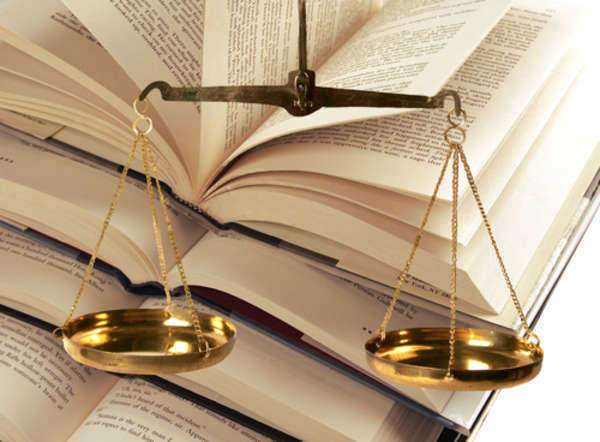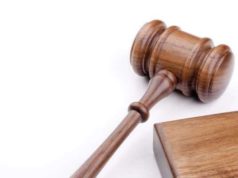
Due to conflicting laws on the state and federal level, drug lawyers are needed to clear up ambiguities involving clients that find themselves accused of violating drug laws. Marijuana especially is subject to at least fifty one different statutes, with laws in all fifty states being different and the selective enforcement of federal law. There are even local laws that need to be observed and may affect a client’s case. A drug lawyer can explain the differences in drug laws between jurisdictions and assist clients in keeping them away from trial or out of prison.
What should I do before meeting an attorney?
When meeting with a drug lawyer in bring all information that can help or potentially hurt your case, especially police reports on the incident that got you into legal trouble in the first place. If the nature of the offense is prescription drug related, bring the legitimate prescriptions documentation as well. You must not enter a plea before seeking an attorney as a drug lawyer will not be able to affect your sentencing beyond this point.
Do I need a specialist?
Drug lawyers may specialize in working with clients with specific offenses such as prescription drugs or marijuana. General practice drug lawyers are generally familiar with all aspects of anti-drug crime and punishment, which means that the client does not necessarily need a drug lawyer that specializes in the specific drug that got the client into trouble with the law
How can a drug lawyer help my case?
If your drug case must go to court, a drug lawyer is a necessity and you should consult with a lawyer immediately after the incident occurs. Legal advice is invaluable at this point and there may be a chance of getting the case dismissed if the evidence used against you was obtained illegally by law enforcement.
Law enforcement has a tendency to force drug offenders to incriminate themselves or others, usually when the actual evidence would not be admissible in court. Having a drug lawyer present during interaction with the police will prevent the client from self-incrimination or other potentially damaging action that could jeopardize his or her case for innocence.
In the event of a serious violation of drug laws, such as causing harm or injury while under the influence of drugs, a drug lawyer is a necessity to serve as the client’s advocate, working to strike deals and prevent the maximum penalty from being enforced. This may mean the drug lawyer recommending a guilty plea and securing a lesser sentence or facilitating cooperation with law enforcement to reduce the potential sentence. There is never a guarantee of innocence or dismissal in these cases, but a dedicated drug lawyer can work to secure the best possible outcome, given the circumstances.
The drug lawyer may not be able to free you from all the penalties involved in your drug case, but the lawyer can work to reduce or defer some of the penalties, such as jail time into alternative punishments, such as probation or drug education and awareness classes to inform the client of his or her dangerous behavior.
What is the usual penalty for drug offenses?
It is important to note that penalties vary widely and are based on the type of drug, the amount of the drug and the user intent for the drug. For instance, for the possession of less than 25 grams of marijuana in New York, an individual only receives a civil citation and a fine of $100. This does become a misdemeanor after the third offense that can lead to 5 days in jail. Increasing penalties are in effect for higher amount of marijuana with more than 25 grams on one’s person considered intent to sell, which will mean significantly higher criminal penalties and mandatory sentencing. Selling, growing or gifting marijuana has its own set of laws with stiffer penalties and fines.
Above state laws are even stiffer federal laws with mandatory minimum sentencing and fines of up to $1,000 with a year in prison for the possession of any amount of marijuana. Penalties are doubled when the drug is sold to minors or near schools. Drug lawyers can help clients in violation of these laws achieve the minimum penalty as well as clear up ambiguities in the law.
Especially with marijuana drug laws, there are a number of distinctions, with states offering medical marijuana exemptions and deferred sentencing. On the other hand, there may be stiffer penalties for marijuana consumption in public or near certain areas such as schools and churches.
Where to look for an attorney
The State Bar directory should be your primary source for seeking a drug lawyer. This will give you the best range of choices and you are almost guaranteed that members of the State Bar adhere to ethics codes and are up-to-date on legal matters concerning their specialty. Following that, you should consult other lawyers. You may seek referrals and indeed many lawyers only work through referrals from other legal professionals. Incessant advertising and soliciting are generally poor indicators of law firm success. Whenever a lawyer offers a free consultation, it is in your best interest to accept the opportunity and discuss potential fees and defenses against the charges.
You may use this website to find an attorney. To do so, use the search box on top of all pages. You may also compare attorneys and ask free questions by clicking Find Attorneys on top of the page.
Evaluating your lawyer
As is the case with every type of lawyer, be wary of drug lawyers that readily agree with you and make excessive promises that seem too good to be true. Criminal defense lawyers can rarely promise anything, such as case dismissal or lesser charges. In most cases, the best the drug lawyer can do is reducing the nature of the violation to possession and other misdemeanors, while dodging felonies and jail time.
Drug lawyers differ in their approach with some preferring to avoid trial altogether due to the risks of an unsympathetic jury. Instead, these lawyers will work towards a settlement or to invalidate the case against the client before it is heard in court.
Relevant fees and arrangements
Expect the fees for cases such as these to be rather high and front loaded, as not many lawyers will be willing to contest drug arrests. Drug lawyers may charge flat fees, combined with hourly fees for the use of the lawyer’s time and ancillary fees for the use of the lawyer’s staff, such as paralegals.
Be aware that drug lawyers will not work on contingency, as there is no award to be won in cases such as this. Be aware of other costs associated with these cases, such as legal document preparation fees.
A retainer is the most likely arrangement for this type of case. Retainer is fee that remains in a trust account that the lawyer bills every time he or she performs a service related to your case. A drug lawyer may ask you to set aside a retainer fee. Leftover retainer can be returned to the client, but there is also a chance that the attorney will exhaust the retainer and require the client to refill the account. The retainer does not include court costs, which are also paid by the client. However, these fees, such as the fees for filing the case, are fixed.
Interviewing your attorney
The following questions are important when interviewing your attorney:
What fees do I pay for retaining services?
Can I have that in writing?
Is there any way these charges can be disputed?
Can I contact you directly if there is a problem?
Can you allow me to examine your credentials?
What is your experience with my circumstances?
If you cannot handle my case, can you refer me to a lawyer that can?
Due to the complicated of drug law, a drug crime lawyer is essential for an individual found in violation of drug laws to avoid the harshest of penalties. A drug crimes lawyer is aware of the specific laws of the jurisdiction related to each type of drug, as well as the penalties. The drug crime lawyer will be able to explain the possible penalties and the distinctions made for possession of a certain amount of the drug, the penalties associated with multiple offenses and the associated criminal and civil penalties. For the purposes of proving intent, drug crimes lawyer will have to prove that the drugs were for personal use and not for sale or trafficking. The associated penalties with the latter two offenses are far more severe than possession, so having a drug crime lawyer to fight for possession penalties rather than sale or trafficking is preferable.
A drug crimes lawyer is by no means affordable and not many criminal defense lawyers routinely take drug cases. Expect to pay a retainer for the lawyer to defend you at trial. Also, expect the lawyer to charge hourly for the use of the lawyer’s time. Still, a drug crimes lawyer will work to the best of his or her ability to keep the client out of jail, with the least harsh penalty allowed under law.
Drug charges tend to vary and a number of factors determine the severity of the charges. A drug charges lawyer can assess your case and fight on your behalf to secure more favorable sentencing for drug charges. A drug charge lawyer is knowledge about the sentencing rules in the state, especially in states with minimum mandatory sentencing. For most states without minimum mandatory sentencing, drug charges lawyers argue for leniency for their clients, with a number of defenses that usually focus on personal consumption, unintentional violations of the law and illegally obtained evidence. For a drug charges lawyer, the ability to prove that evidence against a client was obtained illegally or under coercion, then the drug charge lawyer can move to have the case thrown out as a violation of the civil protections of the law.
Drug charges lawyers will often work to keep cases out of court as juries in most of the country are unsympathetic to defendants in drug cases. More often they will work, pretrial, on plea agreements to lessen the charges or punishments. Some states, for example, will offer alternative punishments, such as community service, probation and drug education programs that keep violator’s records clean, avoid excessive fines, and will not incarcerate the violator. A drug charge lawyer will be able to work on securing alternative and out of court punishments that are far more preferable to a criminal trial.
A drugs lawyer defends clients that have violated drug laws by informing them of their rights, preventing them from making incriminating statements and securing leniency. Drug crime lawyers typically work for retainer or hourly fees and can be reasoned with to formulate an alternative or different payment program for clients in need. Additionally, some non-profit and community organizations will offer pro bono drug crimes lawyers to those in need. Low cost services may also be available to the needy. Drug crime lawyers formulate their case based on several factors, including the type of drug the client was caught with, the client’s intent with the drug and how the client was caught with the drugs. All of these factors, combined with the conduct of law enforcement, will determine the chance of the drugs lawyer achieving leniency for the client.
The drug crime lawyers case can be complicated if the client has caused injury or damages while under the influence of drugs. Some drug crime lawyers will not take these cases and the client may be forced to use a public defender. Leniency and out of court settlements are almost impossible in these cases as liability is clear and the impairment is (usually) voluntary.
When meeting with a drugs lawyer in bring all information that can help or potentially hurt your case, especially police reports on the incident that got you into legal trouble in the first place. If the nature of the offense is prescription drug related, bring the legitimate prescriptions documentation as well. You must not enter a plea before seeking an attorney as drug crimes lawyers will not be able to affect your sentencing beyond this point.
Do I need a Drug Crime Lawyer?
A drug crime lawyer is a legal representative who defends clients or processes claims for or against individuals charged with a drug-related crime. Because drug laws in the United States are stringent, you will need to hire a drug crime lawyer if you are charged with a drug-related incident. That being said, drug laws in the U.S., will vary based on state; some infractions, such as small marijuana possession in the state of California, may be appeased through the payment of a small fine. These types of small misdemeanors will not necessitate the hiring of a drug crime lawyer. Therefore, the need of a drug crime lawyer is highly elastic to the severity of the charge; if your crime carries severe punishments (such as jail time or exorbitant fines) you will want to hire a drug crime lawyer.
The hiring of drug crime lawyers will prove beneficial for severe charges; a drug crime lawyer can obtain a plea agreement, or through the construction of a sound defense, mitigate the charges associated.
Each state and the federal government of the U.S. utilize laws against the unlawful use, possession, production and distribution of certain illegal drugs. These include, marijuana (will vary between a misdemeanor and a felony depending on amount and state law), amphetamines, cocaine, heroin and an assortment of other drugs. These laws are implements to reduce illegal drug use, cut down on drug-related crimes and impede drug trafficking practices.
Federal Laws on Illegal drugs:
The federal government implements a five-category schedule to grade drugs based on their potential for abuse, dependency and crime. These variables are compared with the drug’s medical value and therapeutic properties to gauge the true danger of the illegal drug. Schedule I contains substances with the highest potential for dependency; these drugs, such as heroine, also serve no medicinal purpose. By contrast, Schedule V drugs (such as codeine) exhibit a low potential for abuse and possess accepted medical uses.
Because of their inherent characteristics, the penalties are most stringent for illegal sale, manufacture and possession of Schedule 1 drugs. The United States Attorney General is responsible for updating or rescheduling this list of illegal drugs. If you have been charged with possession, manufacturing, trafficking or distributing any schedule I drugs, you must seek the aid of a drug crime lawyer. The penalties attached to Schedule I drugs include hefty fines and lengthy jail sentences; these penalties however, may be reduced through the aid of drug crime lawyers.
State Laws on Illegal Drugs:
State laws regarding drug-related crimes will vary, but in general, the majority of states will follow the aforementioned federal drug schedule. State penalties will also coordinate with the federal government’s schedule; however, it is not uncommon for individual states to implement stiffer penalties for selling, using or making certain drugs.
The punishment or sentence for a drug-related crime will depend on the quantity, classification and purpose of possession regarding the drug. In general, the most serious drug-related offenses are the following: selling, trafficking, possessing or making illegal drugs.
Do I need a specific Drug Crime Lawyer?
Although these laws appear to be all-encompassing, there are a number of ambiguities and nuances attached to a drug-related crime. Because of the complexities associated, it is necessary to hire a drug crime lawyer for charges that carry more than just simple fines. According to the federal scope, possession can be a very serious crime that is attached with a prison sentence. The penalties associated will depend on the classification of the drug and the quantity involved. For example, possession of a small amount of a certain drug for personal use may be punishable with only a fine. It is these variables that are crucial when evaluating your need for a drug crime lawyer. If the amount of the fine or punishment exceeds the cost of the drug crime lawyer, then you should hire the individual. If the attached fine or punishment is minor and the drug crime lawyer’s fees exceed the prospective punishment, the need for representation is not significant.
This evaluation only takes the drug crime lawyer’s fees into consideration—the inclusion of a drug crime lawyer will invariably include other variables that extend beyond the representation’s cost. These variables will vary based ion the crime in question and the location of the incident. For instance, if a locality institutes strict laws and coordinating punishments for possession of a Level III drug, the suspect’s fine may also be met with additional punishments, including probation, community service, or the presence of a criminal record. These punishments may be mitigated by including a drug crime lawyer in your defense.
How do I Select a good Drug Crime Lawyer?
If you have been charged with a serious drug-related offense, you will undoubtedly need to contact a drug crime lawyer. To find suitable drug crime lawyers in your area you must utilize all available resources. Before finding drug crime lawyers in your area you must construct a cost/benefit analysis to inspect the overall value of the legal aid—if the drug crime lawyer’s cost exceeds the individual’s benefit than hiring a drug crime lawyer is fruitless.
If the drug crime lawyer’s cost does not exceed the expected benefit (typically realized with more severe charges) you must first begin your search by utilizing Internet resources. It is important to note that if face felony drug charges and cannot hire a lawyer because of financial reasons, a public defender will be appointed for you by the state.
If you are hiring a drug crime lawyer through a private practice you should first use Google searches and other Internet resources to compile a list of all drug crime lawyers in your area. Once you are able to view a list of drug crime lawyers in your area, you should look at the individual profiles to evaluate their specialty. In addition to performing Internet searches, you should also visit your state’s bar association website to observe the lawyer’s credentials (the individual must be licensed) as well as any disciplinary actions taken against the individual in the past.
Screening Drug Crime Lawyers:
Once you have compiled a list of prospective drug crime lawyers in your area, use the following guidelines to conduct an initial screening:
• Observe the individual’s biographical information, including whatever you can find on their web site. Does the drug crime lawyer have expertise in the area of drug law that you need? Does the drug crime lawyer belong to any reputable organizations or associations in the area of law that pertains to your case?
• Ask other people, including your friends and families, if they have used a drug crime lawyer in the past.
• Check the online archives of your local newspaper to reveal any cases that the drug crime lawyer has handled in the past.
Drug Crime Lawyers and their Fees:
A drug crime lawyer will most likely charge by the hour or by a flat fee that is payable up front. Regulations of professional conduct for your particular state will prohibit the legal professional from entering into a contingent agreement from a drug-related charge. Drug crime lawyers practice competitive pricing models, so it is important to shop around.
A drug crime lawyer with a solid reputation and years of practice will typically charge higher rates. Although more expensive, you will want to hire a drug crime lawyer with at least a few years or experience. Furthermore, you will want to hire a drug crime lawyer who is experienced in handling cases that are similar to yours. Experience is necessary because the majority of drug-related crimes are resolved through a plea agreement with the district attorney’s office. This negotiation will require the drug crime lawyer to have a good relationship with the prosecuting attorney or a reputation that commands respect in the jurisdiction.
Questions for your Drug Crime Lawyer:
• Do you have experience handling these matters?
• What can I expect from my plea arrangement?
• How long will this charge stay on my record?
• Can you elucidate on your payment schedule?
• When can I expect this matter to be resolved?











